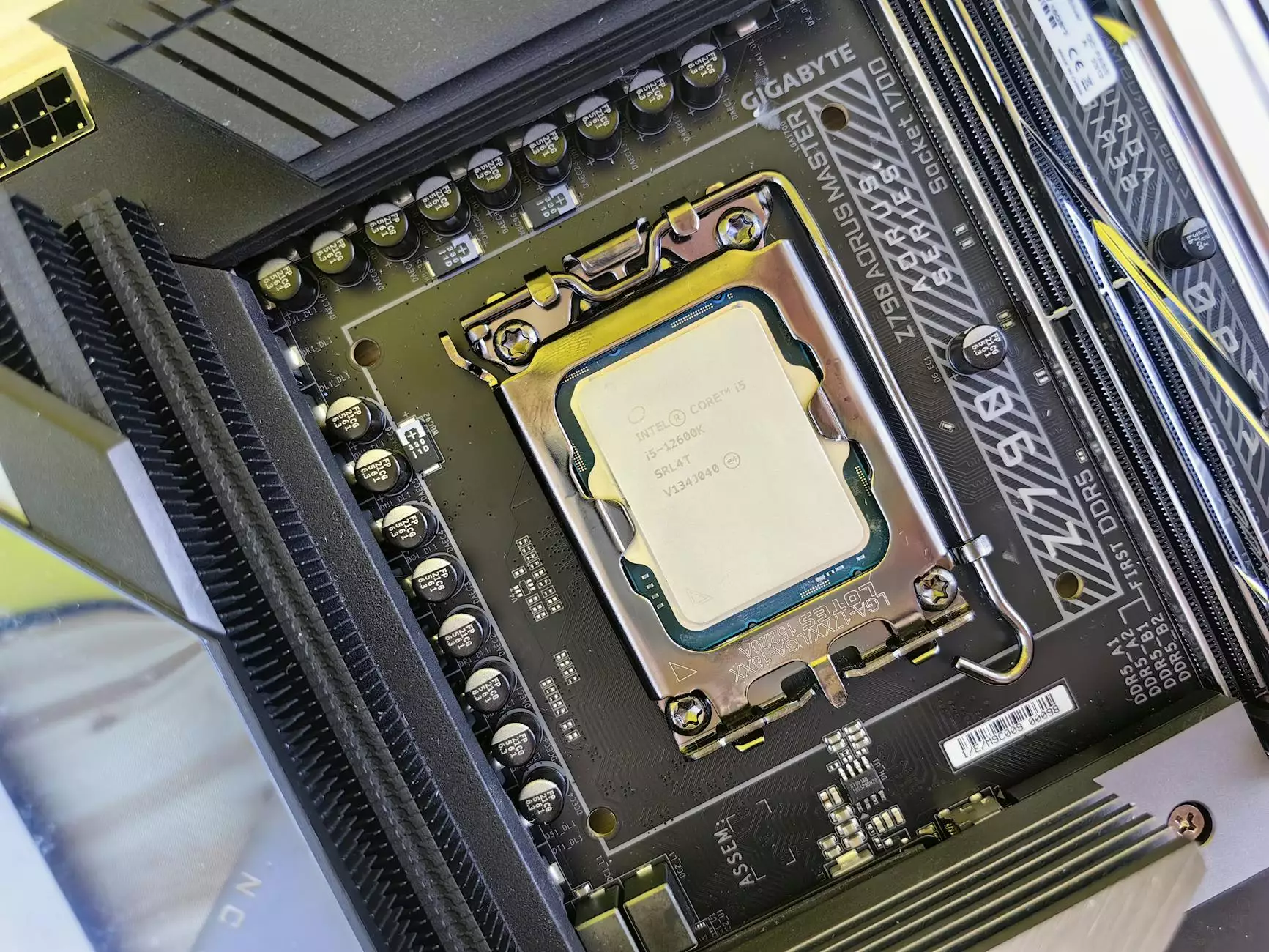Unlocking the Power of Proprietary Trading in Crypto Commodities: A Deep Dive into Innovative Financial Strategies

In the rapidly evolving world of financial services, proprietary trading in crypto commodities has emerged as a transformative force, reshaping the landscape of investment strategies and capital deployment. As digital assets continue to gain mainstream acceptance, the integration of proprietary trading with crypto commodities offers a potent avenue for traders and financial institutions to capitalize on volatility, innovation, and technological advancements. This comprehensive guide explores the fundamentals, benefits, challenges, and future prospects of proprietary trading in crypto commodities, equipping investors and traders with valuable insights into this frontier of modern finance.
Understanding Proprietary Trading in Crypto Commodities
Proprietary trading, often referred to as prop trading, involves financial institutions or firms trading assets using their own capital, rather than client funds. The primary goal is to generate high returns through strategic market positioning, leveraging advanced analytics and trading algorithms. When applied to crypto commodities, this practice taps into the high volatility and liquidity of digital assets like Bitcoin, Ethereum, and other blockchain-based commodities.
Crypto commodities extend beyond cryptocurrencies to include digital assets backed by physical or financial commodities, such as tokenized gold, oil, or agricultural products. The combination of cryptographic security, decentralized networks, and real-world asset backing creates a fertile ground for innovative trading strategies aimed at extracting maximum profit from ever-changing market dynamics.
The Rise of Crypto Commodities in the Financial Services Sector
The integration of crypto commodities into traditional financial markets marks a significant shift, driven by factors such as technological innovation, increasing institutional participation, and regulatory clarity. Institutions recognize the potential of crypto commodities to diversify portfolios, hedge against inflation, and access previously unattainable liquidity pools.
As a result, financial services firms are investing heavily in infrastructure, expertise, and technology to facilitate efficient proprietary trading in crypto commodities. These efforts include developing sophisticated trading platforms, employing AI-driven analytics, and forming strategic partnerships to stay ahead of market trends.
Key Components of Successful Proprietary Trading in Crypto Commodities
1. Advanced Technology and Trading Algorithms
Proprietary traders rely on cutting-edge technology, including machine learning algorithms and quantitative models, to execute high-frequency trades with precision. These algorithms analyze massive data sets—including market prices, order books, social sentiment, and macroeconomic indicators—to identify profitable opportunities and execute trades in milliseconds.
2. Risk Management and Capital Allocation
Effective risk management strategies are vital in the volatile realm of crypto commodities. Traders employ sophisticated tools like stop-loss orders, hedging techniques, and portfolio diversification to mitigate potential losses. Capital allocation must be dynamic, adapting to market conditions and maintaining a balance between aggressive and conservative strategies.
3. Regulatory Compliance and Ethical Trading
Navigating the complex regulatory environment surrounding crypto assets is critical. Firms engaged in proprietary trading in crypto commodities must adhere to legal standards, implement robust KYC (Know Your Customer) procedures, and ensure compliance with Anti-Money Laundering (AML) policies. Ethical trading practices preserve reputation and foster sustainable growth.
Advantages of Proprietary Trading in Crypto Commodities
- High Liquidity: Crypto markets operate 24/7, offering continuous trading opportunities and minimizing liquidity constraints.
- Market Volatility: The inherent volatility in crypto commodities creates opportunities for arbitrage, short-term trading, and directional bets.
- Decentralization: Blockchain technology provides transparency and reduces intermediaries, lowering trading costs and enhancing efficiency.
- Asset Diversification: Incorporating crypto commodities allows traders to diversify portfolios beyond traditional financial assets.
- Innovative Financial Instruments: Tokenization of physical commodities opens new avenues for investment and trading strategies.
The Challenges Facing Proprietary Trading in Crypto Commodities
Despite its numerous benefits, proprietary trading in crypto commodities faces several hurdles that require careful navigation:
- Regulatory Uncertainty: The evolving legal landscape around crypto assets creates compliance complexities and potential legal risks.
- Market Manipulation: Crypto markets are susceptible to manipulation schemes like pump-and-dump, which can distort prices and increase risk.
- Security Concerns: Cybersecurity threats and hacking incidents pose significant risks to trading infrastructures and digital asset custody.
- Technical Complexity: The need for sophisticated infrastructure and expertise can be cost-prohibitive for smaller firms.
- Market Volatility: While volatility offers opportunities, it can also lead to substantial losses if not managed properly.
Future Trends and Innovations in Proprietary Trading in Crypto Commodities
The landscape of proprietary trading in crypto commodities is set to evolve rapidly, driven by technological innovations and increasing institutional adoption. Key future trends include:
- Growing Institutional Participation: More hedge funds, asset managers, and proprietary trading firms entering crypto markets will lead to increased liquidity and market maturity.
- Integration of AI and Machine Learning: Enhanced predictive analytics and autonomous trading bots will improve decision-making accuracy and execution speed.
- Development of DeFi and Tokenized Commodities: Decentralized Finance (DeFi) platforms facilitate lending, borrowing, and derivatives trading tied to crypto commodities, expanding operational scope.
- Enhanced Regulatory Frameworks: Clarity and standardization in regulations will foster trust and stability, encouraging broader participation.
- Cross-Asset Arbitrage: Advanced strategies leveraging price discrepancies across traditional and crypto markets will become increasingly prevalent.
How to Succeed in Proprietary Trading in Crypto Commodities
Achieving success in proprietary trading in crypto commodities demands a combination of technological sophistication, strategic foresight, and disciplined risk management. Here are vital principles:
- Develop Robust Trading Algorithms: Investing in powerful, adaptable algorithms is key to capturing fleeting market opportunities.
- Maintain Rigorous Risk Controls: Regularly evaluating risk exposure and adjusting strategies accordingly helps safeguard capital.
- Stay Informed on Regulatory Changes: Continuous monitoring of legal developments ensures compliance and mitigates legal risks.
- Leverage Data Analytics: Deep data analysis provides actionable insights, enhancing predictive accuracy.
- Build a Skilled Team: Expertise in blockchain technology, quantitative analysis, and regulatory compliance is indispensable.
- Adopt Cutting-Edge Technology: Staying ahead with advanced trading platforms, security measures, and AI tools provides a competitive edge.
Conclusion: The Future of Proprietary Trading in Crypto Commodities within Financial Services
As the digital economy continues to expand, proprietary trading in crypto commodities stands out as a promising frontier for innovative financial institutions aiming to maximize returns and diversify portfolios. The amalgamation of technological innovation, strategic insight, and regulatory evolution will define the success of traders and firms operating in this space. While challenges persist, the opportunities outweigh risks for those prepared to invest in the right infrastructure, expertise, and compliance frameworks.
For businesses like PropAccount, embracing these trends and leveraging specialized expertise in crypto commodities can position you at the forefront of this financial revolution. Success hinges on continual learning, agility, and strategic foresight—qualities that will unlock unparalleled potential in proprietary trading.









